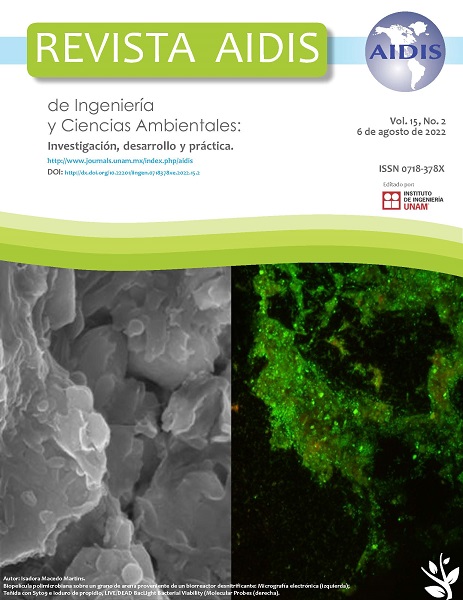DEGRADATION OF BIODEGRADABLE MATERIAL IN THE COMPOSTING PROCESS OF HOUSEHOLD ORGANIC WASTE AND TREE PRUNING: INFLUENCE OF OAT HULLS IN THE FORMULATION
Conteúdo do artigo principal
Resumo
With attractive research and development of new biodegradable polymers and their packaging applications, there is a need to address their environmental performance. This study aimed to evaluate the compostability of biodegradable materials (BM) produced with cassava starch, glycerol, poly (lactic) acid (PLA), and oat hulls to compost organic waste. The composting was carried out in 100 L reactors, 30 L of which were occupied with household organic waste and 66 L with tree pruning. The process was monitored for 60 days using the following parameters: temperature, C/N ratio, total organic carbon, total nitrogen, pH, electrical conductivity, series of solids, humidity, and reduction in mass and volume. At the end of the experiment, the degradation of the BM was analyzed by scanning electron microscopy (SEM). In the SEM images, cracks, voids, and irregular surfaces were observed, which did not exist in the BM before composting. The degradation of BM occurred, and their presence did not interfere in the composting process or the final compost's quality.
Detalhes do artigo
Como Citar
[1]
Moiser, R.G., Bilck, A.P., Yamashita, F., Chies, L.G., Presumido, P.H., Meneses, R.M., Michels, R.N. e Dal Bosco, T.C. 2022. DEGRADATION OF BIODEGRADABLE MATERIAL IN THE COMPOSTING PROCESS OF HOUSEHOLD ORGANIC WASTE AND TREE PRUNING: INFLUENCE OF OAT HULLS IN THE FORMULATION. Revista AIDIS de ingeniería y ciencias ambientales: Investigación, desarrollo y práctica. 15, 2 (ago. 2022), 773–788. DOI:https://doi.org/10.22201/iingen.0718378xe.2022.15.2.79575.
